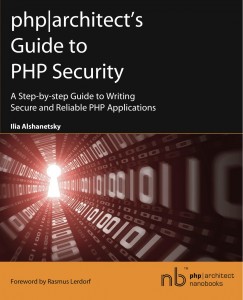Andi Gutmans on :
Hi Ilia,
I think the statistics are off because if I'm not mistaken they look at the installed base of applications and not at what PHP developers are writing new functionality and apps in.
Based on our customer base we see that over 70% are actually using PHP. So I think it's fair to say that the majority of development today is on PHP 5.
Cheers,
Andi
I think the statistics are off because if I'm not mistaken they look at the installed base of applications and not at what PHP developers are writing new functionality and apps in.
Based on our customer base we see that over 70% are actually using PHP. So I think it's fair to say that the majority of development today is on PHP 5.
Cheers,
Andi











ATK rules... on : PHP4 vs PHP5 - a summary